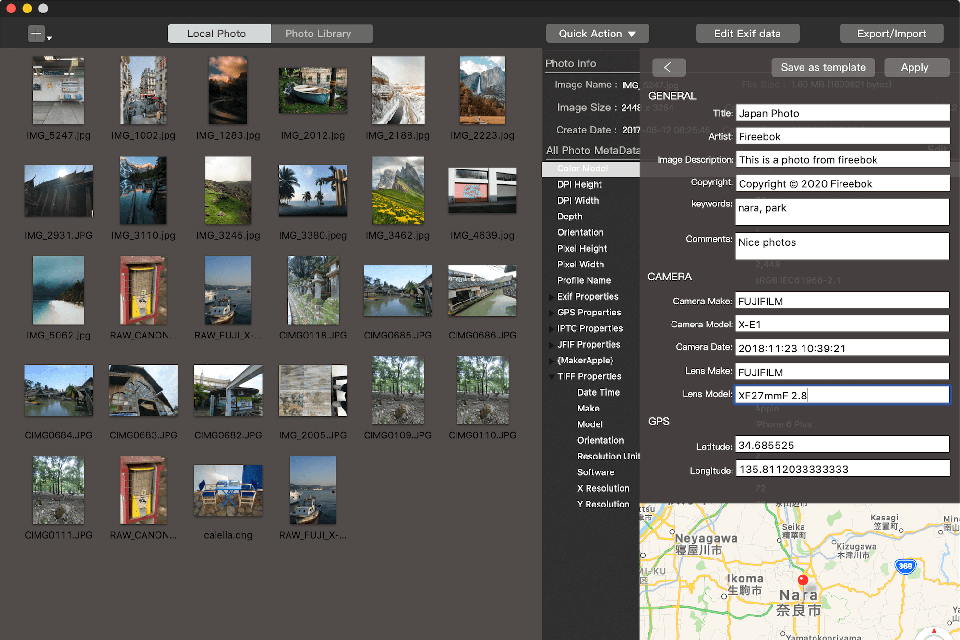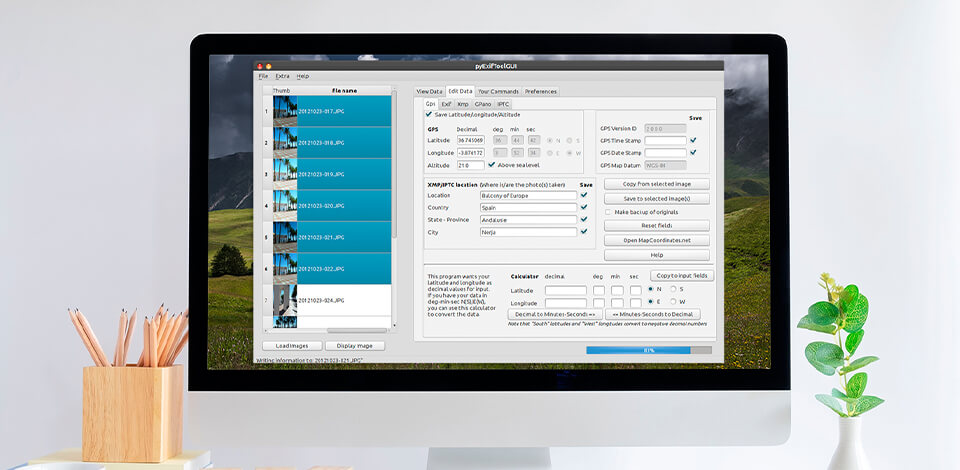
Using an EXIF editor, you can change or delete your device ID, time, date, and geo-data of your images. In most cases, people need such programs to maintain their privacy or make changes to date and time info.
Since not all cameras have a GPS feature, EXIF editors come in handy when you need to add geo-data. I have compiled a list of the best EXIF data editors, using which you can view image metadata and even make edits if needed.
EXIF editors differ in various aspects from the number of editable tags and the range of handy features to the UI design and license (paid or free programs).
EXIF files contain all photo metadata - when a photo was taken, the camera model used, the camera manufacturer, the resolution of a photo, orientation (portrait and landscape views), and more. With the best EXIF editor at your disposal, you can make changes to any of these details.
Verdict: ExifTool is a powerful EXIF editor that reads, writes and edits metadata in a wide variety of file formats. It also supports the highest quality image formats, so you can open and view such files. This is a really cool feature, because many modern cameras save images in such formats.
ExifTool can also function as file copy software performing automatic image backups and allowing users to enter their own keywords. Other praiseworthy functions are batch editing and deletion. The range of formats this software can work with is mind-blowing – JPEG, DNG, TIFF, PNG, RAF, ARW, JP2, CR2, NEF, PEF, ORF, and more.
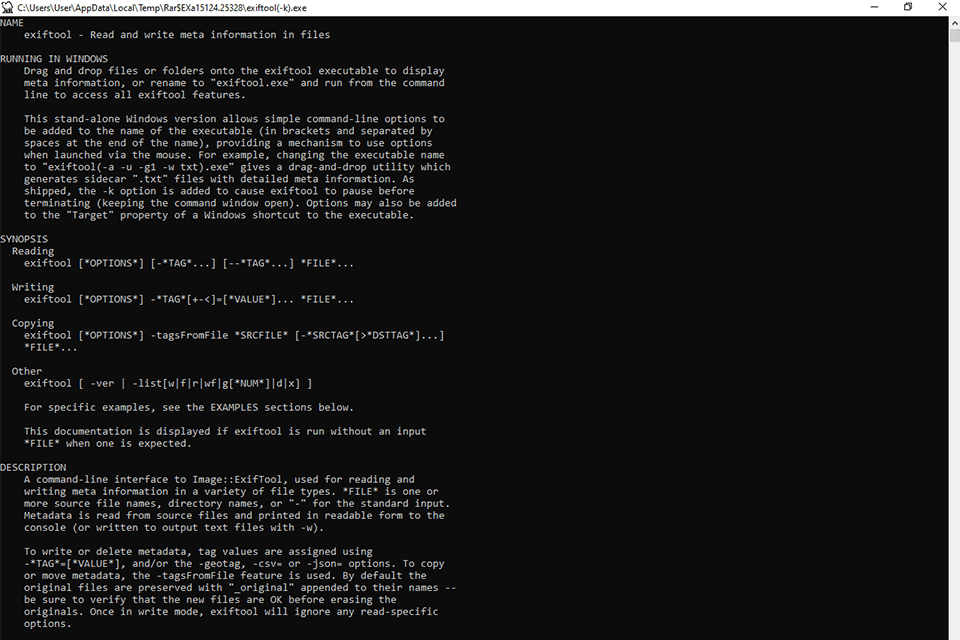
Verdict: EXIF Date Changer is a handy tool for editing EXIF data of digital photos. Users can either alter the data of each separate photo or work in a batch mode. Here you can edit the date and time of a file, shifting them by a certain interval, or set the same date and time for all images.
The built-in calculator makes the process even more convenient and prevents possible mistakes. In the settings, there are many additional handy options: scanning subfolders, replacing original files, saving the original date of the last change, adding comments to EXIF information, renaming by template, etc.
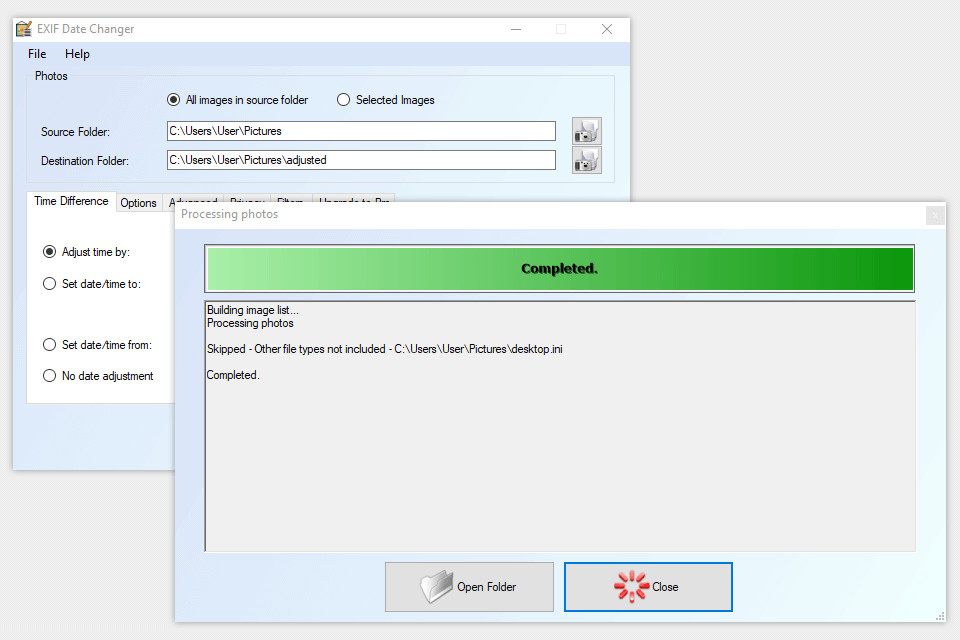
Verdict: Exif Pilot is an IPTC editing program that you can also use as an EXIF editor. You need to view the folder containing images and select a particular file for data editing using the “Edit EXIF/IPTC” menu.
The program has a well-designed and simple user interface and supports most of the common image formats. By the way, you can add new photos to Exif Pilot either by drag-and-drop method or using a built-in file manager.
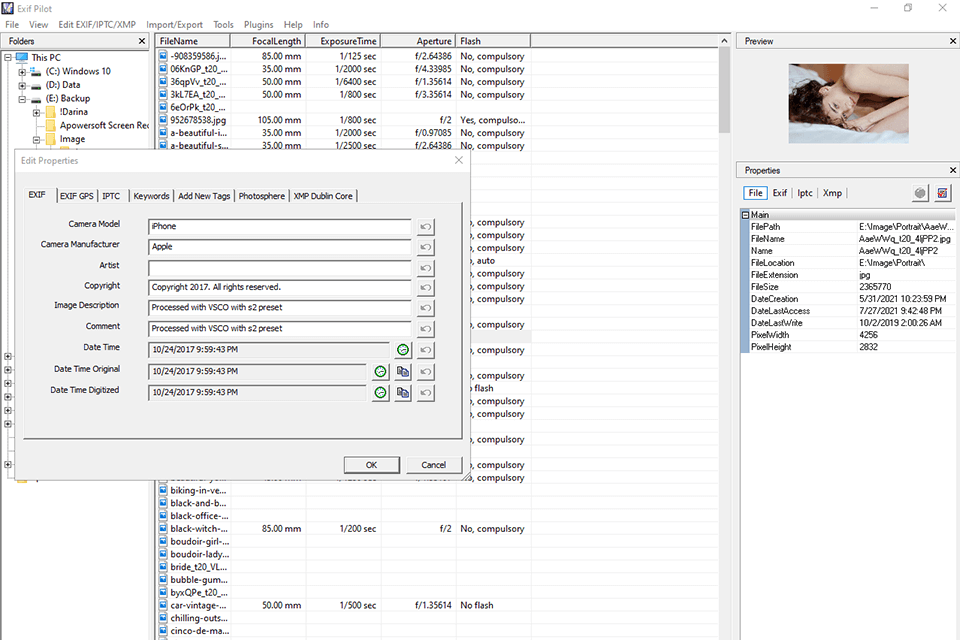
Verdict: GeoSetter can read information from a wide variety of GPS recorders and write GPS coordinates to EXIF headers of digital images. Besides, it allows you to see the place where the photo was taken on Google maps. If you want to work not only with JPEG but also RAW files, this can be the best EXIF editor for you. In addition, this program can read EXIF data, search for particular figures, and add IPTC tags.
This free EXIF editor doesn’t contain ads. First, you need to open the folder with images. All photos will be displayed at the top left part of the interface. To add information about the location where the picture was taken, you just need to find this place on the map and double-click on it. There will appear a point and when you hover over it, the program will suggest setting current coordinates in the file properties.
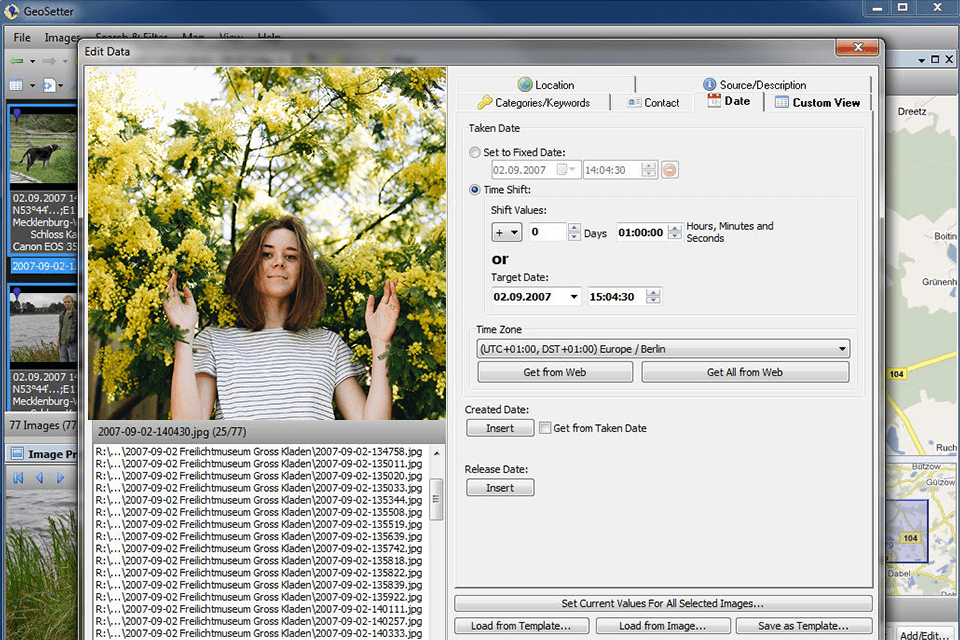
Verdict: cdWorks Photo Helper is convenient free watermark software, which allows you not only to create watermarks for photos, text or graphics, but also rotate photos, manage and edit EXIF data. You can get samples of your data, including GPS coordinates, personal information, camera settings, and more.
Using the program, you can rotate images and synchronize orientation fields or EXIF sizes. It is also possible to edit the title and description of an image. The software is easy to install, has a neat UI with many high-quality instruments.
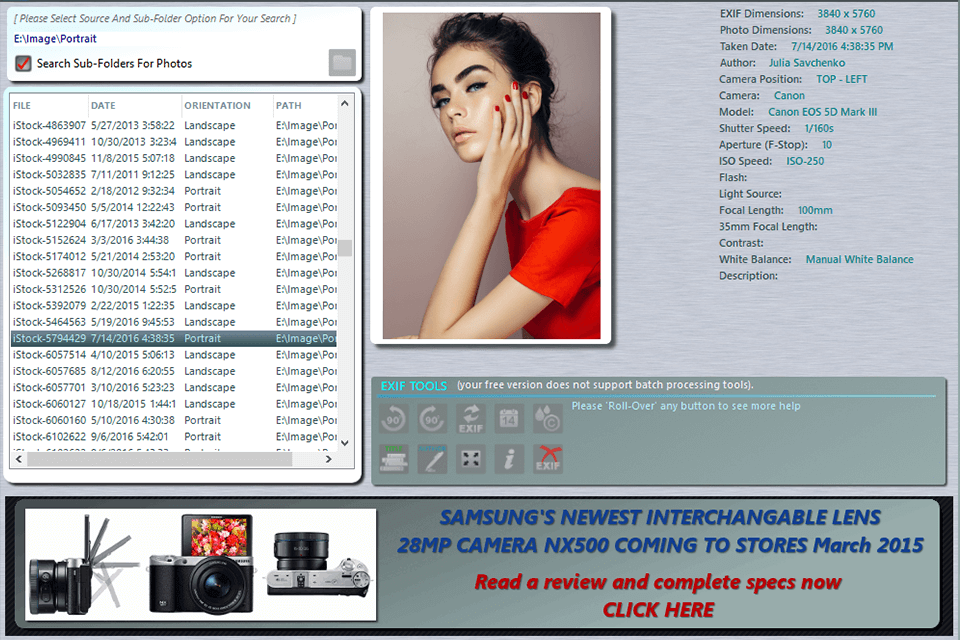
Verdict: Quick EXIF Editor is a free EXIF editor with many great features. You can preview the image, toggle the display of EXIF information, import or export EXIF from/to a file. Users can also create a queue, change the date and time, and access advanced features.
Although the program doesn’t offer any extraordinary features, it perfectly copes with its main task. Besides, being a lightweight EXIF editor Windows, it doesn’t consume much of the computer's resources. The program doesn’t include a help file and gives an error message if you double-click in the displayed EXIF area field.
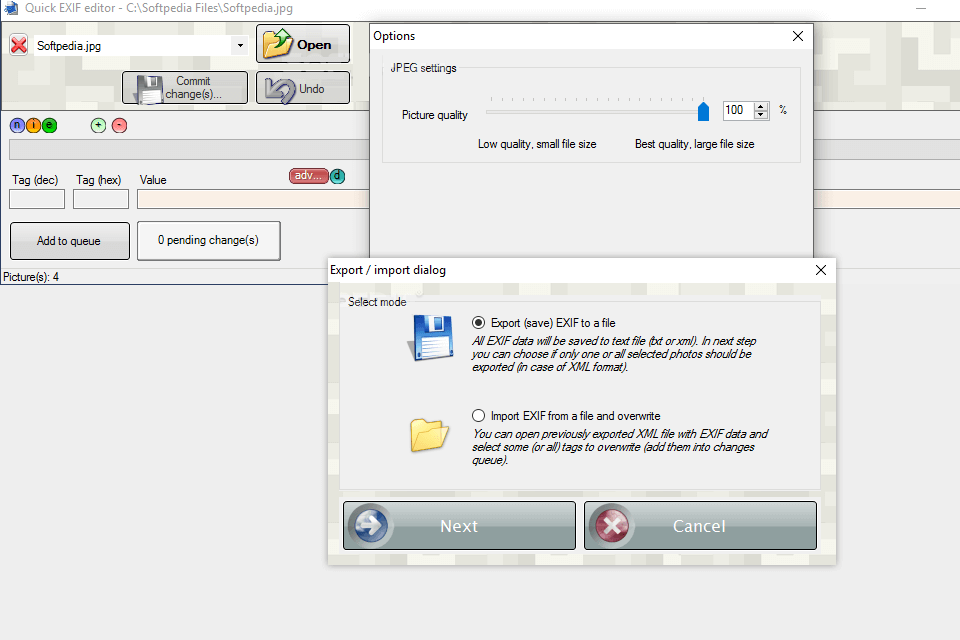
Verdict: EXIF Viewer2 is a handy tool that you can use to view all kinds of information stored in JPEG files that you have saved on your computer. The information displayed in this program is divided into four categories. There is file information, which includes entries for local path, file name, and file size.
Another type is image data, which allows you to see when an image was taken, when it was digitized, and when it was last modified. You can also learn information about a camera, including the manufacturer and model; and camera settings such as F-number, aperture value, exposure, time, shutter speed, focal length, exposure program, and metering mode.
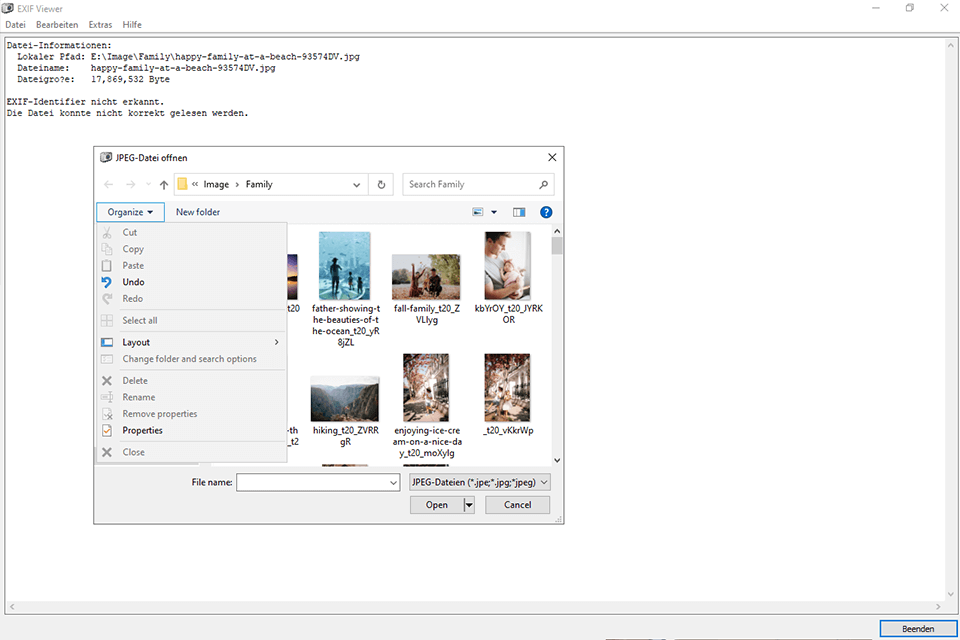
Verdict: IrfanView is a perfect tool for those users who want a program with the main functions, unobtrusive design, and lag-free operation. This EXIF editor perfectly combines small size, diverse functionality, and user-friendly interface.
Beginners can also use this program as photo editing software for PC, as there are main tools and functions needed for this task. You can change brightness, crop a photo, resize it, and apply a variety of filters. Another important feature is format changing.
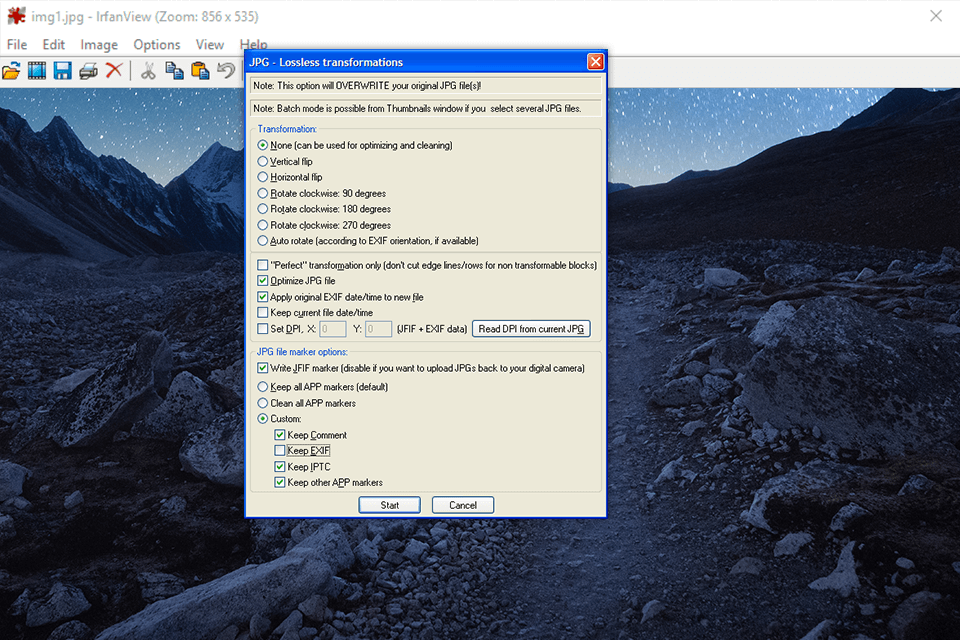
Verdict: ExifPro is an image viewer that allows you to display, describe, label, and manipulate your photo collection. The program offers several viewing modes such as thumbnails, preview, or image details. Selected images can be copied, resized, cropped, rotated, renamed, and adjusted.
ExifPro can provide EXIF data describing various parameters used by digital cameras when shooting. You can create HTML albums or slideshows using built-in generators, print images, add descriptions and tags, and automatically rename and transfer photos. The preview window allows zooming and panning, correcting color and aspect, checking a lighting table, and making slideshows.
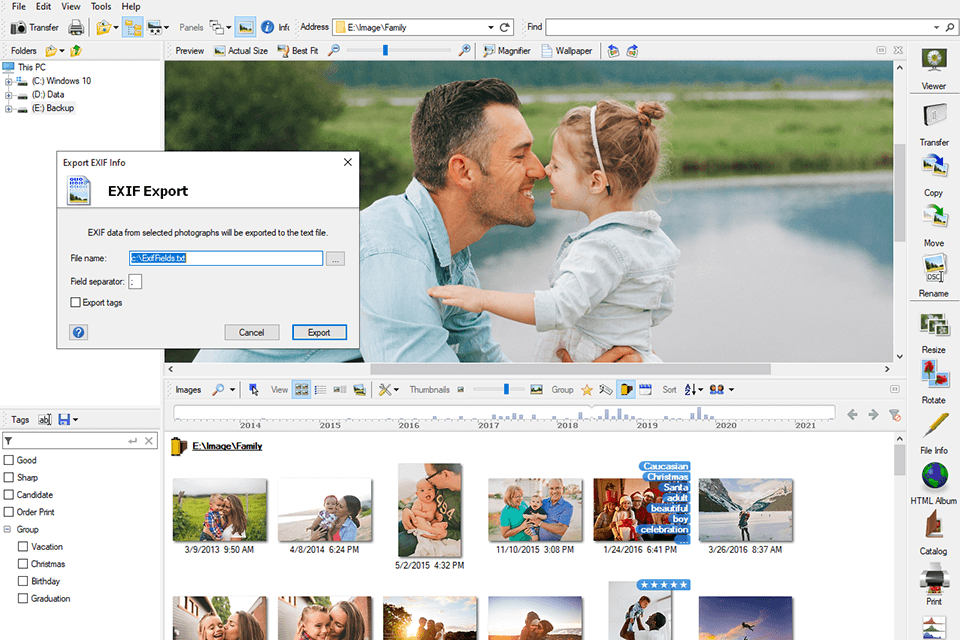
Verdict: Fireebok is a powerful photo metadata editor for macOS that supports both local and cloud-stored photos, including iCloud Photos, Google Photos, and the system Photo Library.
It allows users to batch edit EXIF, IPTC, and XMP metadata across JPG, Live Photos, and RAW formats. The app features quick editing tools for modifying dates, locations, camera info, and more.
In addition to editing, Fireebok offers tools for finding and removing duplicate photos, fixing broken photo references in the library, and even merging multiple photo libraries. It's ideal for photographers and Mac users who want full control over their photo metadata.
